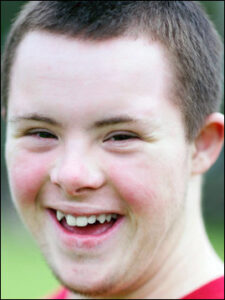
Ryan is a 16-year-old with Down syndrome. Ryan is independent but still requires help for certain day-to-day activities from his foster parents and other caretakers.
Recently, Ryan has been asking his foster parents more about sex. His foster parents, believing that Ryan doesn’t need to learn about sex, have ignored Ryan’s questions.
But now Ryan’s foster parents have learned that one of the caretakers at his school has been acting inappropriately toward students with disabilities. Ryan’s foster parents are angry, and sad, but also wondering if they could have prevented sexual abuse by talking to Ryan about sex and touching — what’s appropriate and what’s not.
Children with disabilities are even more at risk, almost 5 times more likely, to be victims of abuse, especially sexual abuse. Also, children in foster care with disabilities are up to 3 times more likely to have been abused than children without disabilities.
Children and adolescents with disabilities are more likely to be sexually abused because of dependence on others for intimate care, increased exposure to many caregivers and settings, inappropriate social skills, poor judgement, inability to seek help or report abuse, and lack of strategies to defend themselves against abuse.
Learning about sex, sexual feelings, behaviors and what is appropriate and inappropriate will help protect them against this type of abuse.
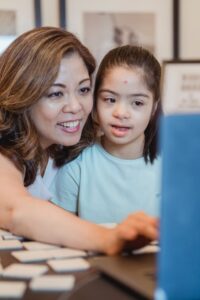 No, talking about sex will NOT promote sexual behavior. In fact, a lack of education poses a greater threat.
No, talking about sex will NOT promote sexual behavior. In fact, a lack of education poses a greater threat.
Youth living with physical and cognitive disabilities are no less sexual people than non-disabled youth and should be talked to about sex. The most effective prevention of sexual abuse happens before a child is harmed. Children are immediately safer when parents and caregivers take the time to learn about sexual abuse.
The information provided here is meant to help parents, and caregivers, of children and youth with disabilities learn the most effective ways to talk to their youth about sex, and the special considerations when talking to youth with disabilities.
If A Child In Foster Care Has A Disability, It Is Important To Remember Three Things:
1. They are part of a very vulnerable population, and it is important to protect them.
2. The best way to protect them is to give them information, honesty, and openness. The more information young people have, the more informed and BETTER choices they make.
3. If your foster child has a disability, make your home space, and communication as accessible to them as possible.
Ways To Address Problems Leading To Abuse:
This table outlines different problems leading to abuse vulnerability, and the things that parents and caregivers can do to address those problems:
Problem Leading to Abuse Vulnerability | What Can I Do? |
Isolation and Segregation From Those Who Are Not Disabled | Get children with disabilities involved in sports, clubs, school activities, play groups, social outings and faith-based activities, and NOT just with other kids with disabilities. This is a great way to reduce isolation and segregation but teach them how naturally occurring relationships and connections happen. |
Lack of Boundaries | Ask before you touch. Even young people with significant disabilities deserve to have people ask before they touch them. (Example: We have to get you clean now. Is it okay if I wash your back?) Also, if a child doesn’t want a hug, even from close loved ones, respect that. It’s a great way to teach body boundaries and respect for them early on. |
Culture of Compliance | Make sure you offer choices that are truly choices. Not: “Are you ready to have dinner?” when its dinner time and there’s not choice in the matter. But: “It’s time for dinner. Do you want to use the red plate or the yellow one?” Or “Do you want to drink milk or water?” Also, let them say no when there is a possibility of saying no. It teaches them that people should respect their words. |
Lack of Information and Education | If your child’s school does not offer health education, see if you can find it elsewhere at a community or faith-based organization. Get them books about age-appropriate information about their bodies, about relationships, about sexual health, about drugs and alcohol and peer pressure. The more informed a child is, the better decisions they make. |
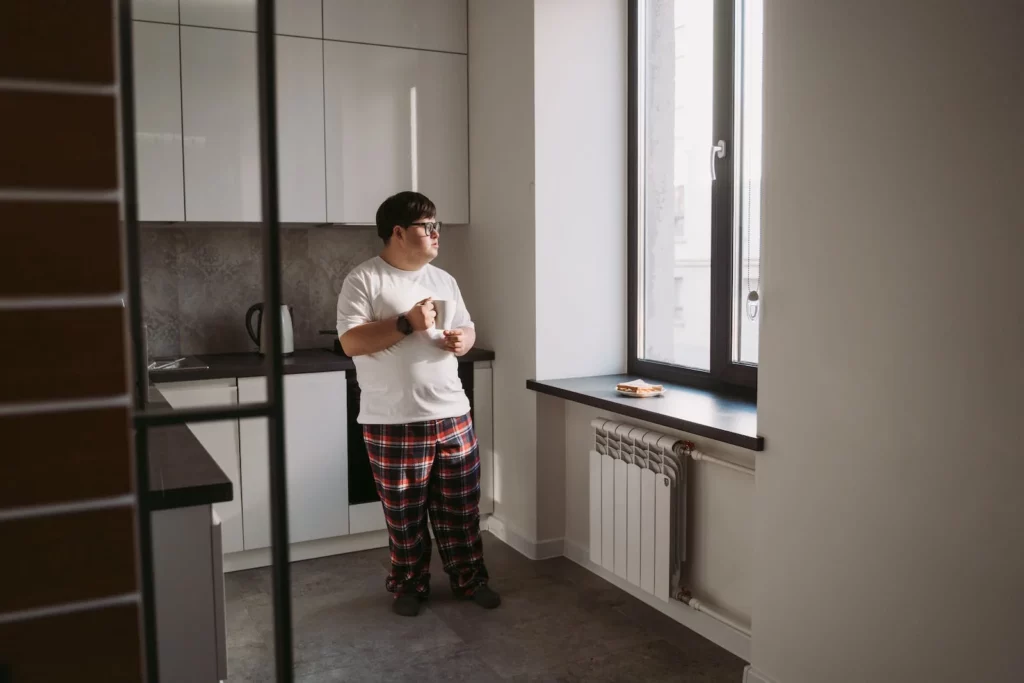
1. Open communication is key. Make sure that your child feels comfortable talking to you and asking questions, and that you are being honest and clear.
2. One size doesn’t fit all. For some children they’re going to need more individually designed help. For example, some children’s thinking might be very, very literal and need carefully explained messages, perhaps using pictures, perhaps using sound, or other teaching methods.
3. Make sure that every adult that spends time with the child (parents, foster parents, schools, residential workers, etc.) are working together and sharing the same information with the same vocabulary.
4. It’s OK for you to ask for help. If you are unsure how to talk to a child with disabilities about sex reach out to someone at their school or other community resource for tips.
5. Talking about sex can be awkward for everyone involved. Keep in mind that your child might be nervous about asking you sex-related questions, so make sure that you don’t dismiss their questions and answer thoughtfully and honestly.
Hear From An Expert: Alie Kriofske Mainella on Educating Children With Disabilities About Sex
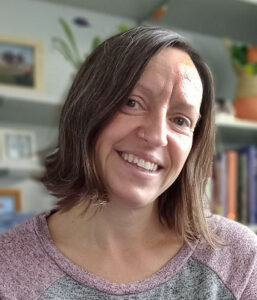 Alie graduated with a PhD in Rehabilitation Counselor Education from The University of Wisconsin-Madison. Before that she worked for 12 years at Independence First, a Milwaukee-based independent living center serving individuals with disabilities. At the center Alie ran the youth program and taught sexual health education and health relationship education to children, youth and adults with disabilities.
Alie graduated with a PhD in Rehabilitation Counselor Education from The University of Wisconsin-Madison. Before that she worked for 12 years at Independence First, a Milwaukee-based independent living center serving individuals with disabilities. At the center Alie ran the youth program and taught sexual health education and health relationship education to children, youth and adults with disabilities.
She’s now an assistant professor in counselor education and counseling psychology at Marquette University.
Kids Matter Inc: A lot of foster children have disabilities. Does talking to children with disabilities change the way you talk to them about sex?
Alie: No. In fact, it’s a common myth that people with disabilities aren’t interested or shouldn’t have romantic and sexual relationship. But actually, they need the same information as everyone else!
KMI: We’ve heard that myth. Are there other myths we should know about with sexual health and people with disabilities?
Alie: People with physical disabilities, like spinal cord injuries or other disabilities requiring a wheelchair or mobility aid, can still have romantic and sexual relationships. A lot of people think that being paralyzed gets rid of that. It doesn’t. Also, despite the social issues common among people with Autism, they still want relationships and romance. That’s the thing. People with disabilities have the same desire for connection as anyone else. They need the same information to be safe and healthy.
KMI: What about sexual health education for people with intellectual disabilities?
Alie: Well, there’s more myths there! These are some of them:
1. People with intellectual disabilities are childlike and not interested in sex.
2. People with intellectual disabilities are not sexual beings
3. If we give people with intellectual disabilities information about sex, they’ll just go out and have it.
Those things are simply not true.
KMI: Thanks for that information. What else do we need to know?
Alie: People with disabilities, whatever their reading or comprehension levels, still live inside of bodies that are developing/have developed at a rate reflected by their age. People with disabilities are as sexual as anyone else, with the same spectrum of sexuality, sexual preference, sexual healthiness, and sexual expression. People with intellectual disabilities have been arrested for sexual offenses, often not because they wished to do something wrong, but because they never learned how to express sexual feelings appropriately. People with intellectual disabilities, like the rest of the population, will make better decisions when armed with all the information they need to MAKE those decisions.
KMI: Anything else?
I just think it’s important for EVERYONE raising children to know that parents are the BEST sexual health educators for their children. And that it is okay to be nervous to talk about it, to not know the answers to things, to need support from other people to talk about these issues with your children or foster children. The main thing is being open, askable and approachable. And we should all get educated ourselves.
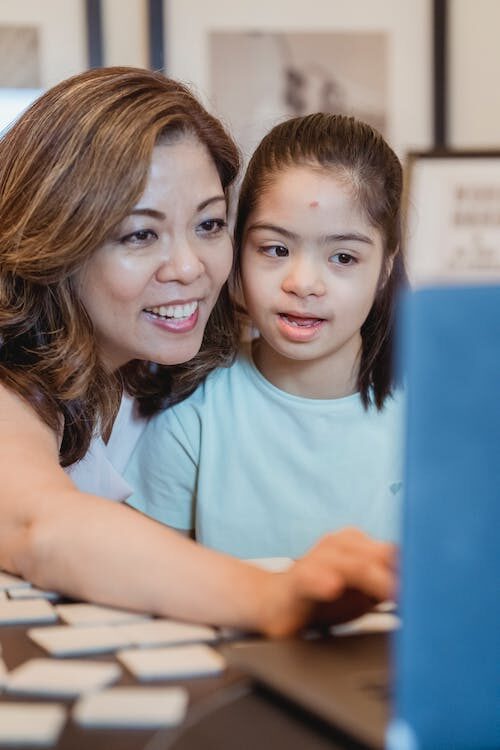
These training resources are not perfect, and most aren’t specifically for kids with disabilities, but the information can be useful for parents/caregivers as a starting point or as additional guidance for when talking to youth about sex as a way to prevent sexual abuse.
The Parenting Network
https://www.theparentingnetwork.org/classes
The Parenting Network is a Milwaukee-based organization that works to strengthen parenting and prevent child abuse. In addition to a wide range of resources, the organization offers one-time classes on specific topics. The organization also leads community conversations and provide workshops and presentations at locations throughout Milwaukee County.
Classes focused on sexual abuse and sexual education:
1. Stewards of Children
A 2.5-hour child sexual abuse prevention workshop for adults. Includes a workbook, resources, and certificate of completion.
2. S.T.A.R.T. – “Sex Talk as Real Talk”
A 1.5-to-2-hour workshop that includes strategies to help caregivers become more comfortable talking with their children about sex among other topics.
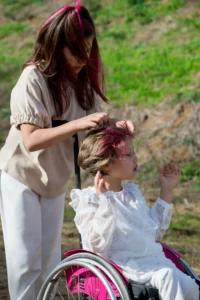 The National Child Traumatic Stress Network Online Resources
The National Child Traumatic Stress Network Online Resources
The National Child Traumatic Stress Network aims to raise the standard of care by services for traumatized children, their families and communities. The organization offers both online and in-person training on a range of topics, ncluding sexual abuse.
Webinars are comprised of virtual presentations by expert researchers and practitioners, on various topics in the field of child traumatic stress. Most webinars are from 60 to 90 minutes in length.
Check out a few the selected webinar trainings:
1. Child Sexual Abuse
https://www.nctsn.org/resources/child-sexual-abuse
This eight-part webinar addresses the response to child sexual abuse. This webinar series provides information about special populations, secondary traumatic stress among providers, and collaborations with media, among other topics.
2. Caring For Kids: What Parents Need To Know About Sexual Abuse
https://www.nctsn.org/resources/caring-kids-what-parents-need-know-about-sexual-abuse
This collection of factsheets provides parents and caregivers with tools to help them support children who have been victims of sexual abuse, information on the importance of talking to children and youth about body safety, and guidance on how to respond when children disclose sexual abuse. This fact sheet series also includes advice on how to cope with the shock of intrafamilial abuse and with the emotional impact of legal involvement in sexual abuse cases.
Circles of Safety
https://www.stopitnow.org/circles-of-safety-training-0
Circles of Safety offers abuse prevention and safety training resources for adults to prevent child sexual abuse in youth-serving environments, including foster care programs. Unfortunately trainings do cost money, but the website also provides a wide range of free resources as well.
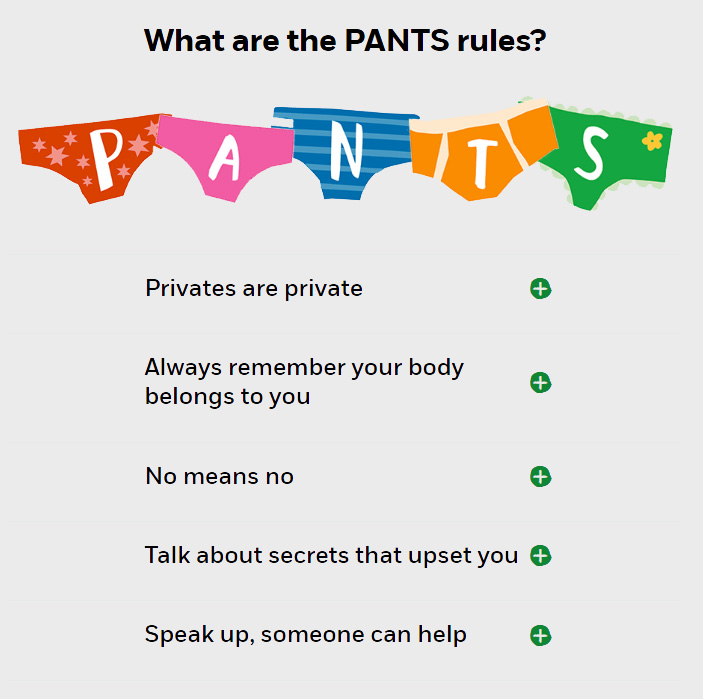 NSPCC: Talk PANTS
NSPCC: Talk PANTS
https://www.nspcc.org.uk/keeping-children-safe/support-for-parents/pants-underwear-rule/
The NSPCC is a UK charity that works to prevent abuse, rebuild children’s lives, and support families. Talk PANTS was created to help children understand that their bodies belongs to them, and they should tell someone they trust if anything makes them feel upset or worried. The website provides free step-by-step guides for parents as well as a child-friendly video.
The Talk Institute
https://www.thetalkinstitute.com/
The Talk Institute is a resource for parents and caregivers to use when talking to their children about sex. There are online courses for parents/caregivers as well as a long list of websites for parents/caregivers and young people. Unfortunately, none of the teachings are specifically for kids with disabilities, and there are fees for some of the online courses.
Planned Parenthood Hudson Peconic, Inc.’s Let’s Talk Program
Let’s Talk: Talking to Children About Sexuality is a program that aims to support parents and caregivers in their roles as the primary sexuality educators for their children. The program helps parents and caregivers respond more comfortably and effectively to a variety of their children’s sexual questions and behaviors. Programs can be tailored to fit any age AND developmental capacity.
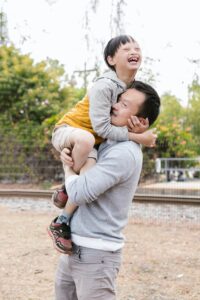 STOP IT NOW!
STOP IT NOW!
https://www.nsvrc.org/organizations/107
STOP IT NOW! Is a national nonprofit that was created to help prevent the sexual abuse of children. The organization doesn’t focus on children with disabilities specifically but provides helpful resources for survivors of sexual abuse and friends and families.
https://www.plannedparenthood.org/learn/parents
Planned Parenthood offers a wide range of resources for parents and caregivers on topics including how to address sex and relationships from pre-K to college.
Sexuality Education for Youth on the Autism Spectrum
Planned Parenthood has created a sex education resource for parents/caregivers of youth with Autism Spectrum Disorder. The web page provides useful tips and other useful resources like educational books.
 Tip Sheet: How To Talk To Your Child To Reduce Vulnerability To Sexual Abuse
Tip Sheet: How To Talk To Your Child To Reduce Vulnerability To Sexual Abuse
This tip sheet provides parents and caregivers of children with disabilities the information they need to keep their child safe from sexual abuse.
Podcast: Preventing The Sexual Abuse Of Disabled Children
The NSPCC funded and published a report that looks at parents’ and caregivers’ views about keeping children with disabilities safe from sexual abuse. This podcast is a conversation with one of the authors of the report and talks about key findings, importance of relationships and sexual education for youth with disabilities, and approaches to preventing sexual abuse.
Robie Harris Books
Robie Harris has written many books that are user friendly and good ways to bridge the information between kids and their parents. For example, It’s Perfectly Normal, Changing Bodies, Growing up, Sex, Gender and Sexual Health is full of info for all preteens and teens, no matter who you are.